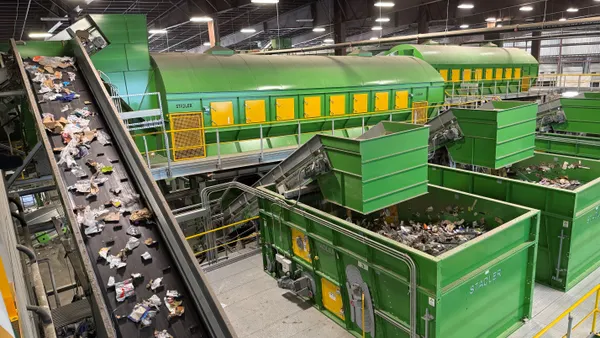Dive Brief:
- American automotive titan General Motors (GM) has entered into the food waste recycling business by forming a partnership with a composting company based in Detroit, MI called Detroit Dirt.
- Food scraps from restaurants located in GM’s world headquarters at the Renaissance Center in Detroit are collected by the compost company. The organic materials are then mixed with herbivore manure and distributed at various urban farms in the area.
- Food waste that doesn’t fall into the category of coffee grounds or fruit and vegetable peelings are converted into energy at a nearby waste-to-energy (WTE) facility.
Dive Insight:
GM's food waste-to-energy and composting plan just recently got underway. Detroit Dirt began working with a single restaurant located in the Renaissance Center in April. Now, five more eateries are expected to join the roster for food collection services. About 12,000 pounds of waste have been collected so far, and the volume of food waste collected by year’s end is anticipated to be around 51,000 pounds.
GM has been attempting to reduce waste in several of its facilities. In July 2013, the company reported that 105 of its plants were zero-waste. GM has been working to reduce the amount of waste it sends to landfills, and reduced the volume of waste generated per vehicle that it makes by 55 pounds per car since 2010.
Last December, GM established a partnership with Detroit Renewable Energy LLC to convert municipal solid waste into steam at a new WTE facility located in Hamtramck, MI. Nearly 60% of the plant’s energy will be derived from renewable energy. And this past June, GM announced its assembly plant in Allen County, IN would transform methane into electricity. The $11 million WTE project is expected to save the company $3.5 million in annual energy costs.














